These Kids Will Be All Right: Meet The New Milken Scholars
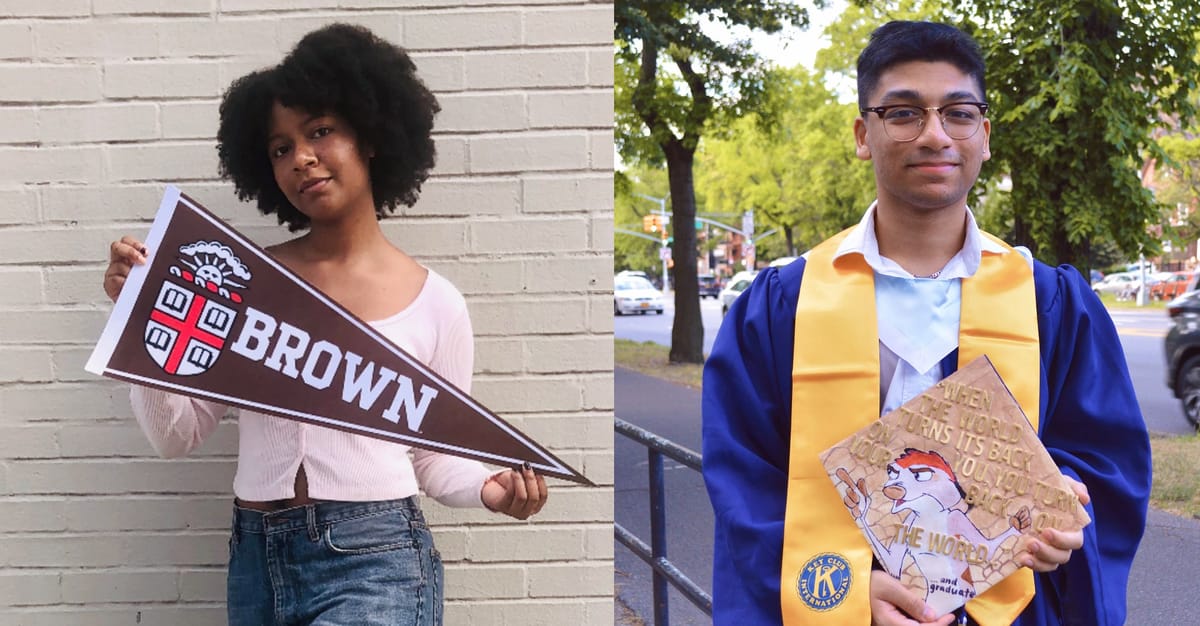

BROOKLYN – For Naomi Nesmith (18) and Ayan Rahman (18), March 13 — the day the NYC Schools shut down in the face of COVID-19 pandemic — was their last day of high school before college. Their last semester of senior year, the semester students wait four years for, was going to be entirely online. Despite the new challenges, both Nesmith and Rahman continued to work hard, not letting anything stop them, and both were named the new Milken Scholars of 2020.
Milken Scholars was founded in 1989 to honor high school seniors “on their academic performance, community service, leadership activities, and ability to overcome obstacles.” Students receive a scholarship of $10,000 as well as ongoing career-related counseling, and of this year’s recipients, two are Brooklynites.
“For more than three decades, the Milken Scholars have inspired us with their achievements, leadership, and dedication to community service,” Milken Institute Chairman Mike Milken said. “We’re proud to welcome these five outstanding young people to the Milken Scholar family. At this difficult time for our nation, we know that they—like all the Scholars over the years—will continue working to change the world for the better.”
Naomi Nesmith recently turned 18-years-old and graduated from Fort Hamilton High School. She lives in Ocean Hill with her family and is headed to Brown University in the fall with plans to read Anthropology. She’s very much into writing; fiction sometimes more than non-fiction. Writing is something that has been cathartic for her, she explained. She has this vivid memory of her in third grade, writing and remembers it just feeling right.
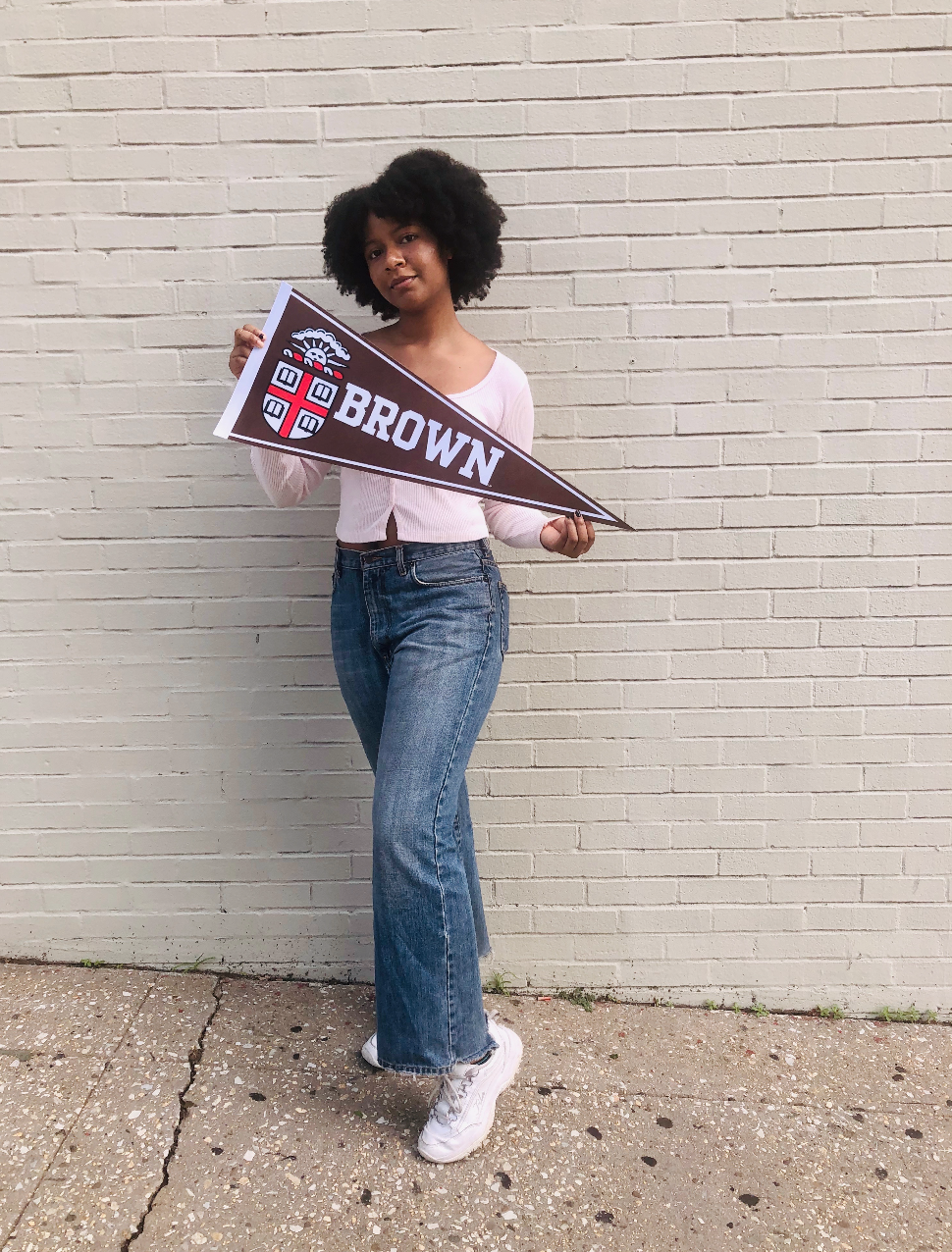
She explained that she was also the type that has a ‘bleeding heart’ – always trying to help others, because “if you don’t stand up for other people, who will?” Nesmith asked.
When she was in high school, she served as the vice president of the Human Rights Club where she organized weekly discussions about worldwide human rights violations and encouraged her peers to get involved in advocacy events addressing climate change, gun control, immigration, and voting rights. Nesmith also served on the organizing team for her high school’s annual fundraising dance for the Make-A-Wish Foundation, as well as taking on other roles. And she hopes to continue her advocacy work once she is in college.
“I am hoping that once I am on campus, we can get something going to help the community around us,” she said. I’ve been looking into the Providence area and a lot of the people are suffering from gentrification, which is something I definitely know about having lived in Bushwick for a large part of my life.”
Nesmith admitted that remote learning was hard in the beginning, as her physics professor refused to change the 7 a.m. class time to later. Weeks later, the Black Lives Matter protests began. Nesmith was not able to attend any of the protests, as her parents were afraid she might get the coronavirus. But that did not stop her from amplifying the voices that needed to be heard.
“I worry that people are allowing this to become a political issue when it’s really just a human rights one,” she said. “I understand if someone doesn’t agree with the BLM organization itself, considering… they also do support different political organizations, but basic support of Black lives and hearing Black stories, especially when it pertains to the police forces, I think that is what is truly important and it’s truly disheartening to hear people retaliate with all lives matter.”
Being a Black woman in this country comes with a lot of emotional labor, Nesmith explained.
“This is not something I ever had to question. My father is a Black man and he’s been stopped by the police and he’s been treated like an ‘other’ in this country,” said Nesmith who is half-Black and half Puerto Rican. “I think as more people are learning about the Black experience in America, they seem almost shocked. They seem a bit in disbelief sometimes as if we’re lying. And that is hurtful to see.”
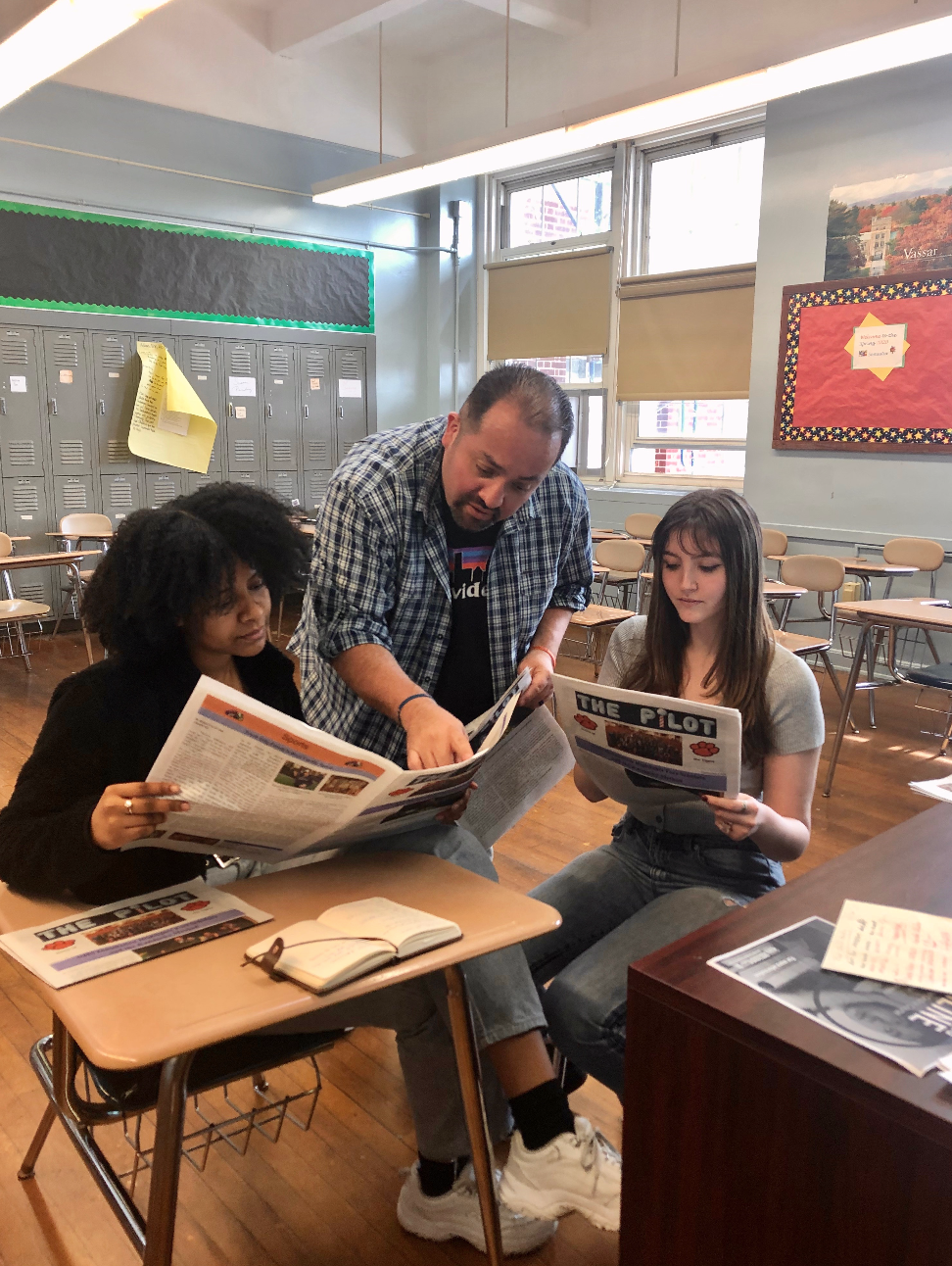
In January, Nesmith was nominated by her school to apply for the 2020 Milken Scholars. She filled out an application and waited and hoped. Soon enough, she had a virtual interview. She remembers, as she was answering the questions and going through her bullet points, there was a bit of noise around her by her landlord and she kept losing her train of thought. She thought he had bombed it.
“It’s honestly really humbling. I knew coming into it that this was something special immediately because there were so many Milken Scholars from different classes reaching out and offering help for me,” she said. “I didn’t know how extensive the Milken program was. It’s just been really great to meet people who see the success in you and they want to help nurture it.”
To honor the recipients, there was supposed to be an in-person summit in Los Angeles, California. But because of COVID-19, the summit turned virtual. Nesmith was ready for the Zoom summit to be less immersive, but it proved her wrong. And for that, she is grateful.
Currently, Nesmith has been spending her time participating in various Milken programs. She is also a part of a brief research internship with Gilder Lerman. She has also signed up to take a virtual course called Avenues to Activism, which is run b a Harvard freshman. She will be moving into campus after January because of the academic year pushback. But she is excited about what is to come.
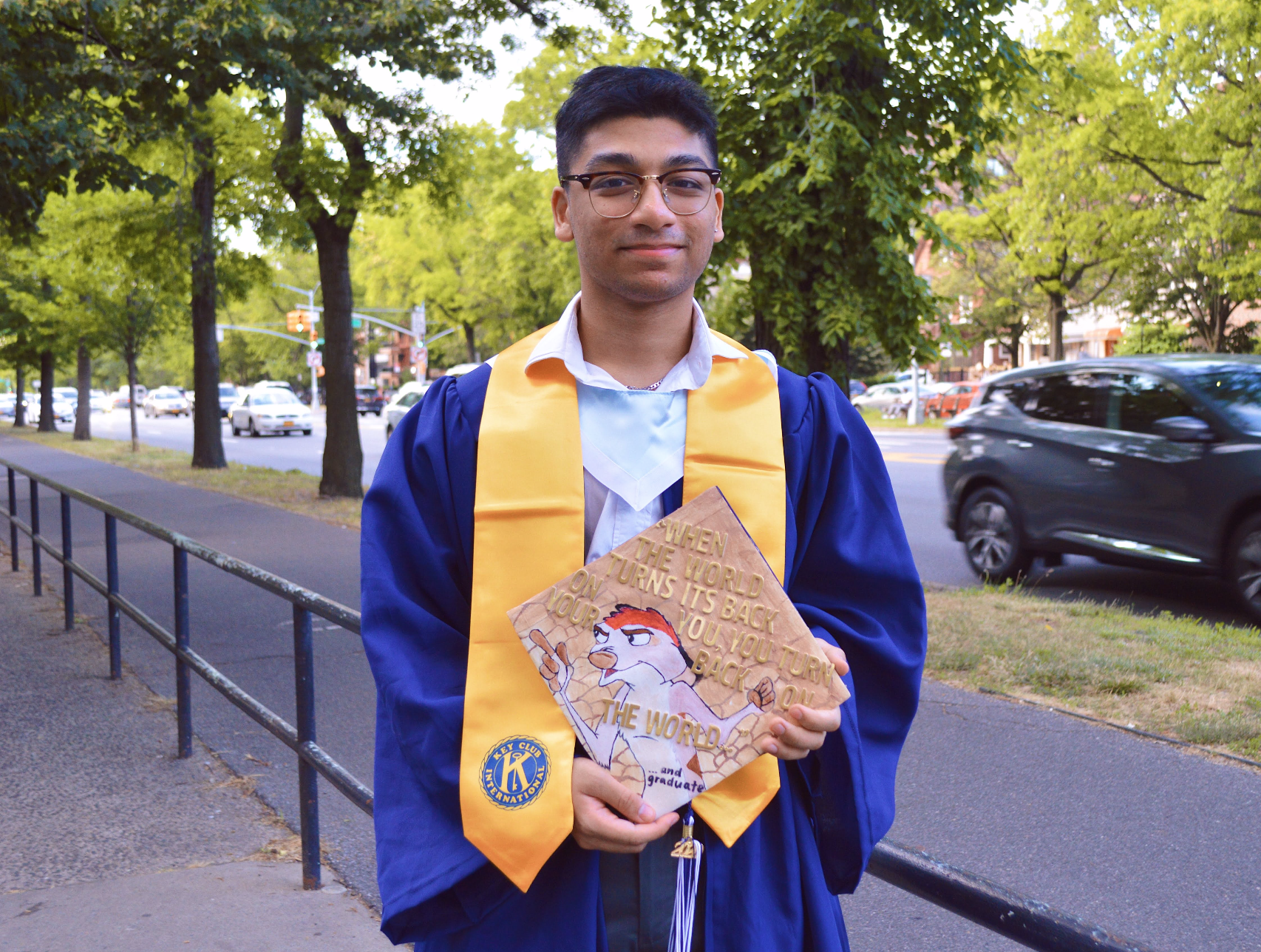
Ayan Rahman is an 18-year-old young man from Kensington. He immigrated to the U.S. with his parents when he was just a one-year-old boy. His family lived in Washington Heights for a while, and when he turned four, they moved to Brooklyn. Rahman recently graduated from Brooklyn Technical High School and will be attending Grinnell College in Iowa.
When he was a freshman at Tech, he joined Key Club International— a non-profit organization for high school students, a club in many high schools across the city. At Tech, there are over 500 members in the club. Rahman joined because of its inclusiveness.
“I had come from a middle school that was predominantly white. I never really saw people that resembled me or made me feel that I was a part of their community,” he explained. “So, I found this community of people that wanted to do good in their world. And I stayed because I saw the sheer impact that students can really have.”
As part of the Key Club, Rahman spent his Saturdays with members working at food banks and planting vegetables at rooftop urban farms. When he was a sophomore, he became the bulletin editor. Soon, Rahman became the club’s president.
“High school students really do have a voice in the world and they have these powerful tools of being able to connect so easily with each other and coming together to create huge changes,” Rahman said. “Being in a group of over 500 kids really opened my eyes. We’ve been able to raise tens of thousands of dollars each year for different charities. Just seeing the fact that students from high school can do so much in their communities and do so much to be the change they wish to see in the world, really inspired me throughout my four years at Tech.”
Like Nesmith, he plans on containing his social justice work once he is at college. He wants to continue to amplify the voices of others.
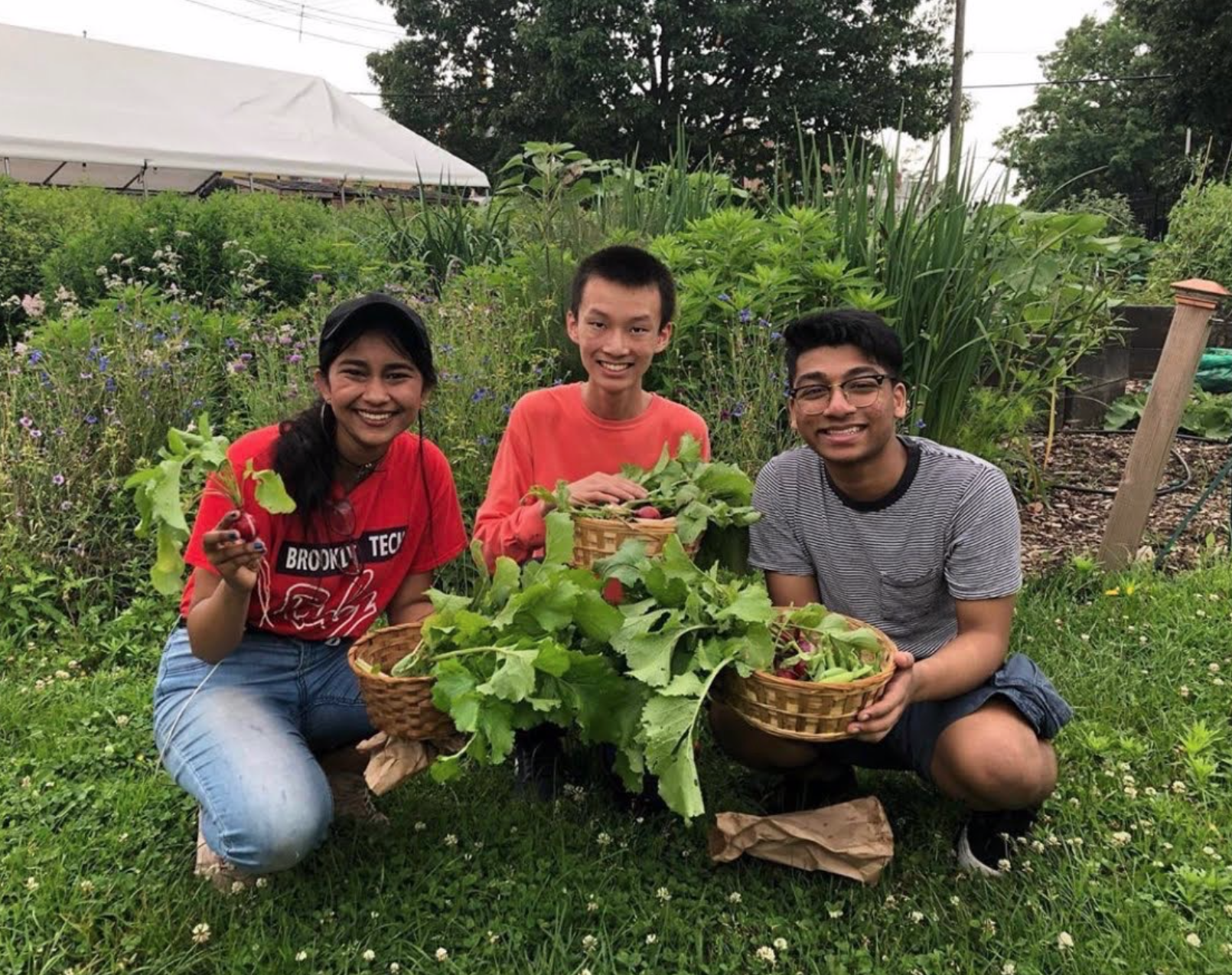
Every summer before this one had been jam-packed with activities for Rahman. This year, he’s been staying at home, quarantining with his parents. Stay at home allowed him to come up with new ideas. Like his Instagram page, for example, The Quaranteenage.
The Quranteenage is a page where high school students throughout the city send in their thoughts on how quarantine is going for them. Currently, the page has 703 followers.
“At a point in quarantine, I really felt like there were a lot of extreme emotions that I was feeling as a teenager in this world that I couldn’t really put into single words. So, I took the time to jot down my feelings and write down exactly what I was feeling,” he said.”It was a mix of fear, and excitement for college, but also a lack of understanding of what was coming next. It was a conglomeration of all these feelings and so I wrote them down. And then it became this Instagram self-run magazine type thing, where I have been collecting stories from teenagers across Brooklyn.”
In January, Rahman was done with college applications and was ready to enjoy his senior year. He didn’t expect to apply for any more scholarships, but his guidance counselor began to push him to apply for Milken Scholars. And so he did.
Did you expect to win? we asked.
Rahman laughed. “No. I didn’t expect them to want me to be a part of this community. And now I am excited.”
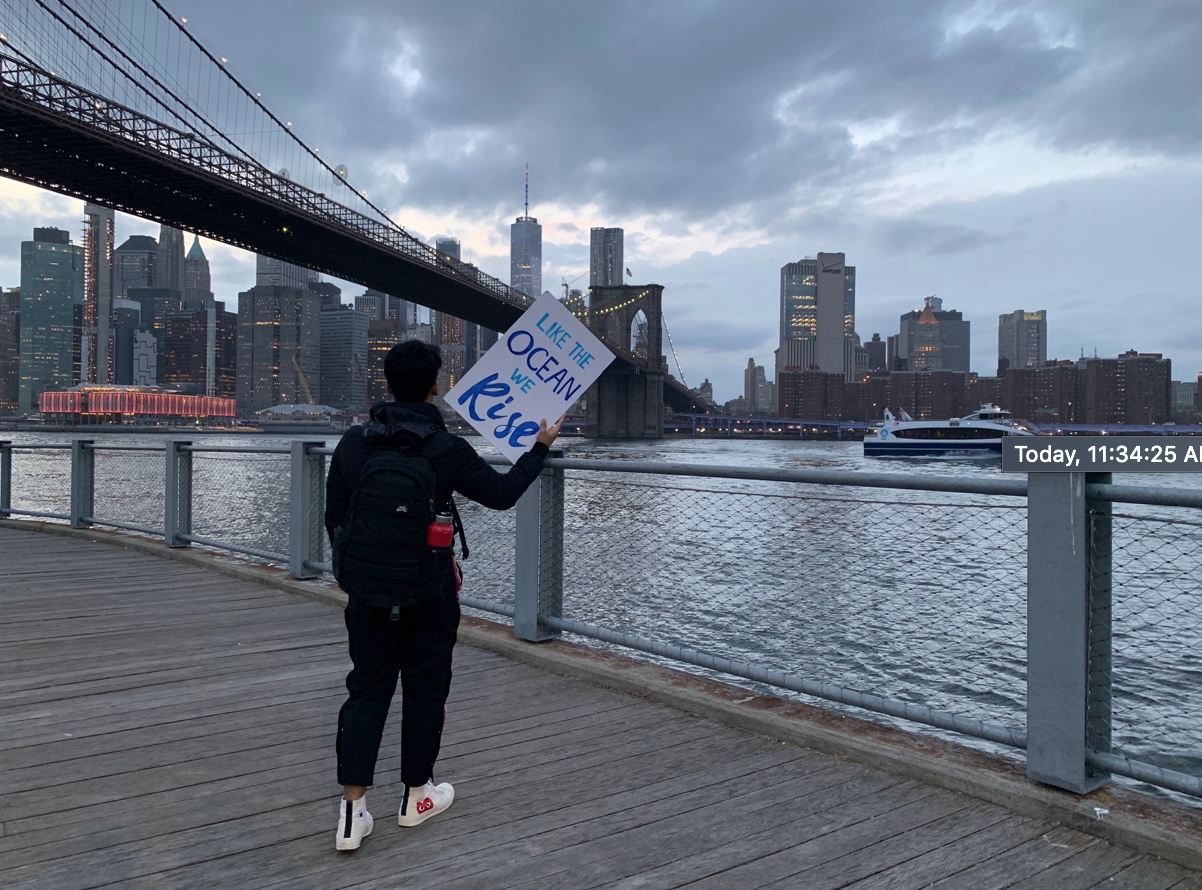
Working hard in school was always important for Rahman. Education is something he believes in so strongly.
“As an immigrant, I grew up with Bangladeshi-American culture and I studied Spanish in school, and I studied abroad [in the Dominican Republic]. So, being able to see the world as a person who is culturally aware, especially in this world, has increasingly become very important to me,” he said. “Education is the best way to become a global citizen. I want to become this global citizen that is actively part of what is going on in their world and surrounding community.”
He credits his parents for getting him to where he is today. They have played a huge roll in his life, a common sentiment among immigrant children, he explained.
“A lot of what I do today is because I’ve been inspired by my family. They dropped their dreams and came to this country,” Rahman said. ” It’s a common thing in immigrant children, seeing your parents drop their dreams and sacrifice everything just so you can dream a little bit bigger than they did. A lot of what I do today is because I want to be that person that took advantage of everything that their parents gave them.”



